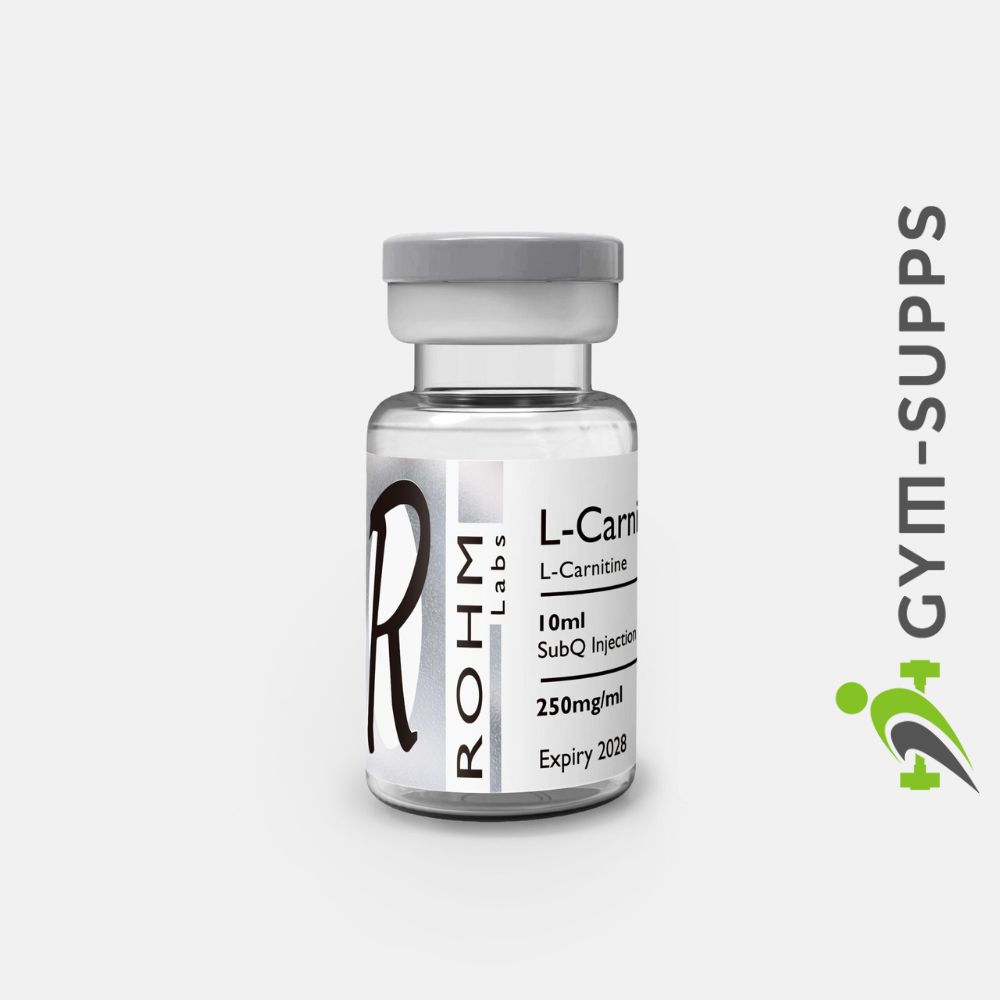


L-Carnitine, synthesized from lysine and methionine, is essential for transporting long-chain fatty acids into mitochondria for β-oxidation and energy production. While primarily made in the liver, kidneys, and brain, it is stored in skeletal muscle. L-Carnitine also regulates acyl-CoA/CoA balance, neutralizes reactive oxygen species, and supports neuromuscular function. Classified as conditionally essential, it is obtained mostly from diet. Supplementation may enhance oxygen delivery, acetylcholine synthesis, and post-exercise recovery under hypoxic stress.
Caballero-García, A., Noriega-González, D.C., Roche, E., Drobnic, F. and Córdova, A. (2023) Effects of L-Carnitine Intake on Exercise-Induced Muscle Damage and Oxidative Stress: A Narrative Scoping Review', Nutrients.
Disclaimer: Information provided it this page is for general information only and does not substitute for professional medical advice.
For detailed information about L-Carnitine 250 by Rohm Labs, consult with your doctor or healthcare professional.


Caballero-García, A., Noriega-González, D.C., Roche, E., Drobnic, F. and Córdova, A. (2023) Effects of L-Carnitine Intake on Exercise-Induced Muscle Damage and Oxidative Stress: A Narrative Scoping Review', Nutrients.

Caballero-García, A., Noriega-González, D.C., Roche, E., Drobnic, F. and Córdova, A. (2023) Effects of L-Carnitine Intake on Exercise-Induced Muscle Damage and Oxidative Stress: A Narrative Scoping Review', Nutrients.

Caballero-García, A., Noriega-González, D.C., Roche, E., Drobnic, F. and Córdova, A. (2023) Effects of L-Carnitine Intake on Exercise-Induced Muscle Damage and Oxidative Stress: A Narrative Scoping Review', Nutrients.